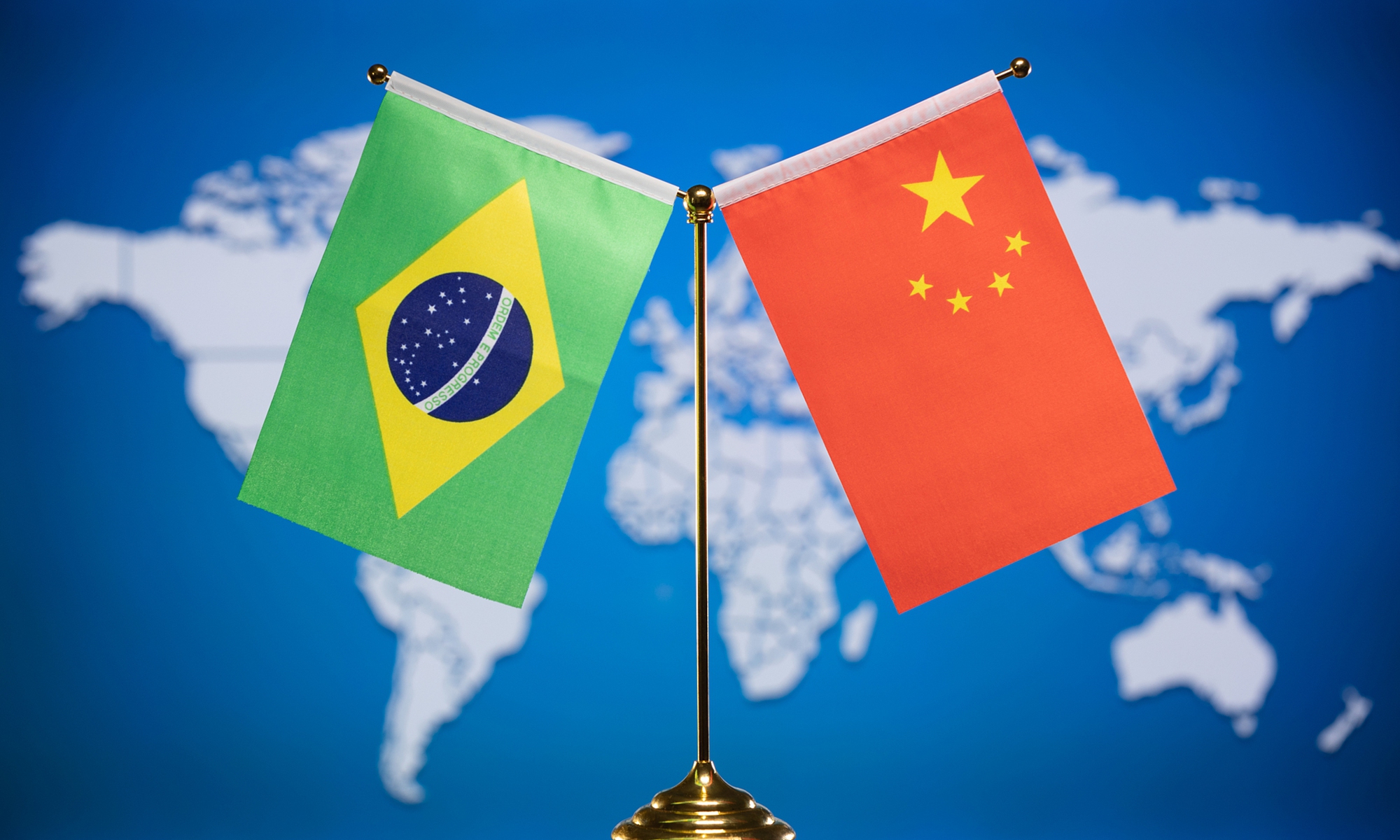
Photo: VCG
Brazil's President Luiz Inacio Lula da Silva will visit Huawei Technologies Co's innovation center in Shanghai on Thursday during his visit to China that started on Wednesday, Bloomberg reported, citing two anonymous sources. While it seems to be a normal arrangement, the Bloomberg report speculated that Lula's Huawei visit "may irk the US."
It is true that the US has added Huawei to its Entity List on grounds of being a so-called national security threat, but it is necessary to underline that the US has no qualifications, nor the right, to prevent or interfere with other countries' normal cooperation with Huawei. When it comes to deciding what companies Lula will visit during his China trip, the choice is neither subject to the US scrutiny, nor to its preferences.
If anything, such speculation and hype by Western media outlets is nothing but irresponsible and driven by ulterior motives. The speculative narrative was more of an attempt to use reported Huawei visit to create pressure on Brazil, warning it not to get too close to China. But this does not work for countries that insist on independent diplomacy.
Huawei has had years of business operations in Brazil and won a tender in 2021 to supply equipment for the implementation of 5G technology across Brazil. From the perspective of Brazil's development of 5G networks and the prospects of closer scientific and technological cooperation between Brazil and China, it makes perfect sense if the president wants to take the rare opportunity to visit a leading Chinese telecommunications giant.
Western eagerness to emphasize the US stance in Lula's visit to Huawei is, first of all, a disrespect to Brazil's will, reflecting a kind of anxiety over China-Brazil cooperation that is bound to extend to more scientific and technological areas. They do not care about the benefits that China-Brazil cooperation will bring to the two peoples, only geopolitical calculations. But the noise Western media outlets are making will not affect the progress of China-Brazil cooperation.
Indeed, the development cooperation between China and Brazil is endogenous and continuous, and is not subject to the geopolitical will of some countries.
China and Brazil are both large-scale developing countries and important emerging market economies, which have developed steady economic and trade cooperation over the past decades. In 2022, bilateral trade between China and Brazil reached $171.49 billion, up 4.9 percent year-on-year, according to statistics from Chinese customs. Brazil is China's ninth largest trading partner, while China has been Brazil's largest trading partner for 14 consecutive years.
Since 1982, when Brazil and China signed an agreement for scientific and technological cooperation, the two countries have inked scores of bilateral accords, particularly in the areas of aerospace, mathematics, climate change, forestry, and energy, among others. In addition to the trade in traditional products like agricultural and mineral goods, there has been growing momentum for scientific and technological cooperation between the two countries.
The Brazilian government has already formulated its own digital economy development strategy and plan, hoping to make it a new engine of growth, while China has the world's second largest digital economy for many years. Therefore, many people believe that the digital field will be a focus of future cooperation between the two sides.
Another potential source of scientific and technological cooperation is Brazil's need to upgrade its manufacturing sector. China is Brazil's main source of imports of mechanical and electrical equipment, accounting for 53 percent of the country's imports of electrical and mechanical parts, laying the foundation for their technological cooperation to promote the upgrading of Brazilian manufacturing sectors, such as the electric vehicle sector.
As for China, closer technological cooperation with Brazil and other developing countries will prove that the US' "decoupling" push cannot prevent China's high-tech sector from going to the world.




